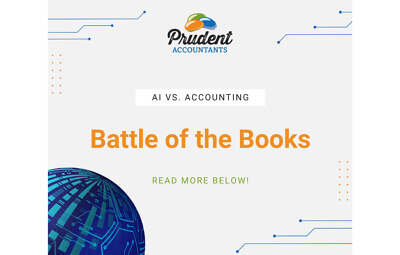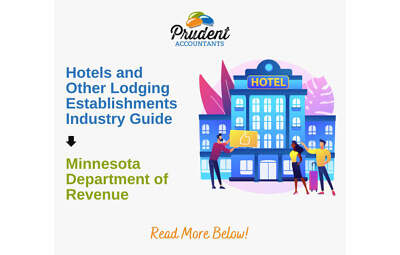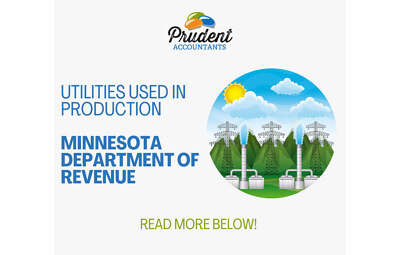Local Sales and Use Tax Guide – Minnesota Department of Revenue

This information describes the sales and use tax topics related to local sales and use taxes. Use Guide Menu links for specific topics.
New or Updated Local Sales and Use Taxes
April 1, 2024:
- Bloomington will have a 0.5% Sales and Use Tax
- Golden Valley will have a 1.25% Sales and Use Tax
- Ortonville will have a 3% Lodging Tax
- Polk County increased to 0.5% Transit Sales and Use Tax
- St. Paul increased to 1.5% Sales and Use Tax
October 1, 2023:
- Fergus Falls will have a 0.5% Sales and Use Tax
- Metro Area Sales and Use Tax for Housing will be 0.25%. This tax will fund and provide support for housing projects in the metro area and state rent assistance.
- Metro Area Transportation Sales and Use Tax will be 0.75%. This tax will fund and support transportation projects in the metro area.
- Both new metro area sales and use taxes are general local sales and use taxes. The taxes apply to taxable sales and purchases made in the seven-county Twin Cities area: Anoka, Carver, Dakota, Hennepin, Ramsey, Scott, and Washington counties.
July 1, 2023:
June 30, 2023:
For a list of all local taxes we administer, see the Local Sales and Use Tax Chart
Local Tax Information
Local taxes apply to the same items and services as the state general rate sales tax (6.875%).
If you use a freight, delivery, or postal service to send goods to areas that have local sales taxes, you must collect those local taxes. This may require you to register, collect, and remit additional local taxes.
General Local Taxes
The Minnesota Department of Revenue is required to collect all general local sales and use taxes. For a list of all local taxes we administer, see the Local Sales and Use Tax Chart.
General local sales and use taxes include:
- City, county, or area local taxes
- Local transit sales and use taxes
- Vehicle excise taxes
Note: We do not administer all vehicle excise taxes.
Special Local Taxes
Special local taxes are imposed by local governments and apply to specific types of sales. Go to the special local taxes section to see which ones we administer.
Who Must Register and Collect Local Tax?
All sellers, including out-of-state retailers or marketplaces, that have a taxable presence (nexus) in a local area must register and collect Minnesota local sales and use tax.
You have a taxable presence if you:
- Have an office, distribution, sales, sample or warehouse location, or other place of business in the local area, either directly or by a subsidiary
- Perform taxable services in the local area
- Ship taxable items into the local area, including all sales made using the internet, mail order, or telephone
- Are an out-of-state retailer that exceeds Minnesota sales tax thresholds and make sales into the local area
How to Register and Collect Taxes
You may register in e-Services, our secure online filing and paying system. If you do not have an e-Services account with us, please create one.
In e-Services, you can:
- Add local taxes when you file your Sales and Use Tax return
- Quickly add all local taxes and other taxes (liquor, car rental, TAM) at one time
Charging Local Tax
You must collect local sales tax based on where your customer receives the taxable product or service.
Determining the Location of Sale and Taxes Due
There are five general sourcing rules that determine where a sale takes place and what taxes are due.
General sourcing rules have an order. Start with rule 1. If it does not apply, go to rule 2. When rule 2 does not apply, go to rule 3. The majority of sales fall into rule 1, 2, or 3.
- Seller’s Address – When the purchaser picks up the product at the seller’s location, charge tax based on the business location.
- Delivery Address – When the customer directs the seller to ship the product or service to a location, charge tax based on the location where the product or service is delivered.
- Billing Address – When 1 or 2 does not apply, charge tax based on the customer’s address in your records.
- When the above do not apply, charge tax based on the customer’s address obtained during the transaction (for example, the address on a customer’s check).
- When an address is not available, charge tax based on the address from where the item was shipped or the service was provided.
Determining the Tax Rate
To determine the sales tax rate, use the location where the customer receives the product or service. We have resources to help you determine the total tax rate. See Calculate a Sales Tax Rate.
Tax Rate Lookup Tools
To help you determine the tax rate, use the tools under Resources on the Local Sales Tax Information page:
- Use our Sales Tax Rate Calculator. If you have a street address, it will identify the nine-digit ZIP Code for you.
- Use our Sales Tax Rate Map. You can visually confirm your location of interest by entering an address.
- Download our Sales Tax Rate Spreadsheet to use at your desk. You must know the nine-digit ZIP Code.
- Download our Sales Tax Rates and Boundaries Tables to program into your point-of-sale system.
Note: These options do not provide information on special local taxes. You must add any special local taxes to the total sales tax rate. See the Special Local Taxes section.
Reporting Local Taxes
Report local taxes you collected on your Minnesota Sales and Use Tax return in e-Services.
- You must report taxable sales for each local area separately.
- Do not include sales tax collected in taxable sales amounts.
- e-Services calculates the local tax due for each local area from the taxable amount entered.
Local Tax Sales Exemptions
You do not need to charge local sales tax when:
- Your customer gives you a completed Form ST3, Certificate of Exemption.
- You sell direct-to-home satellite (DBS) services (not cable).
- These services are subject to the Minnesota general rate sales tax, but not local sales tax.
- You sell to a local government.
- Local governments do not pay local sales or use taxes. An exemption certificate is not necessary.
- Local governments are required to pay special local taxes such as food and beverage, admission, restaurant, liquor, and lodging taxes.
Vehicle Excise Tax
A $20 vehicle excise tax applies to sales of motor vehicles in applicable cities or counties. Any person in the retail business of selling new or used motor vehicles must collect and remit the $20 vehicle excise tax. The vehicle excise tax is reported on your Sales and Use Tax return. For more information, see Motor Vehicle.
We administer a $20 vehicle excise tax in these areas:
City or County |
Effective Date |
| Anoka County | 10/1/2017 |
| Beltrami County | 4/1/2014 |
| Carlton County | 4/1/2015 |
| Carver County | 10/1/2017 |
| Dakota County | 10/1/2017 |
| Goodhue County | 1/1/2019 |
| Hennepin County | 10/1/2017 |
| Kandiyohi County | 4/1/2018 |
| Otter Tail County | 1/1/2016 |
| Ramsey County | 10/1/2017 |
| Rogers | 10/1/2019 |
| St. Louis County | 4/1/2015 |
| Sauk Centre | 1/1/2020 |
| Scott County | 10/1/2015 |
| Transit Improvement Area | 7/1/2008 – 9/30/2017 |
| Washington County | 10/1/2017 |
| Willmar | 10/1/2019 |
Special Local Taxes
Special local taxes are imposed by local governments and apply to specific types of sales, including:
- Admissions
- Entertainment
- Food and beverages, including restaurant and liquor
- Lodging accommodations
Some special local taxes are administered by a local government and not the Minnesota Department of Revenue. For questions, contact the city or county.
We administer the following special local taxes in these areas:
Local Area |
Special Local Tax Administered |
| Detroit Lakes | Food and Beverage |
| Giants Ridge Recreation Area | Admissions and Recreation, Food and Beverage, Lodging |
| Lake County | Lodging |
| Lake of the Woods County | Lodging |
| Mankato | Food and Beverage, Entertainment, Lodging |
| Marshall | Food and Beverage |
| Minneapolis | Entertainment, Lodging, Downtown Liquor, Downtown Restaurant |
| North Mankato | Food and Beverage |
| Proctor | Food and Beverage |
| Rochester | Lodging |
| St. Cloud | Liquor, Food |
| St. Paul | Lodging |
| Two Harbors | Lodging |
| Woodbury | Lodging |
For rates and more information, see:
Local Use Tax
Local use tax applies when you buy items or services in a local area without paying local sales tax to the seller.
- Use tax is similar to sales tax and the tax rates are the same.
- Use tax is based on your purchase price of the taxable item.
- Local use tax is based on where the item is used.
Here are some situations where you may owe local use tax:
- You buy taxable items or services online without paying sales tax
- You take an item from inventory to use (instead of selling it), donate, or give away
- You buy taxable items outside of Minnesota
- You buy taxable items in another Minnesota city or county with a lower or no local sales tax
- You bring taxable items from one local area to use in another local area
For more information, see Use Tax for Businesses and Use Tax for Individuals.
Variable Rate Credits
Local Tax Variable Rate Credit
If you pay local sales tax in Minnesota to one locality but use the items in another area with a higher local tax rate, you are allowed a credit for the local sales tax you already paid.
If you pay a higher local tax rate at the time of purchase and use the item in a local tax jurisdiction with a lower local tax rate, no credits are allowed.
State Variable Rate Credit
If you buy items while physically in another state and bring the items back to Minnesota, you may owe use tax if the other state’s tax rate is lower than Minnesota’s. If the other state has a lower sales tax rate than where the item is used in Minnesota, you are allowed a credit for the sales tax you paid.
If the other state’s tax rate is higher than where the item is used in Minnesota, no credit is allowed.
Examples – Local Sales Taxes
In these examples, the general Minnesota sales tax applies and local sales taxes apply as described.
1. A Duluth company sells and delivers items to a business in Hermantown. Since the items are delivered to the business in Hermantown, the Duluth company is required to collect the tax where the items are delivered.
The following taxes apply to the sale:
- Minnesota General Sales Tax Rate
- Hermantown Sales Tax
- St. Louis County Transit Sales Tax
2. A contractor buys and picks up materials in a city with a local sales tax. The materials are then used in a location where there is no local sales tax. The contractor must pay the local sales tax, because the materials were picked up in an area with a local sales tax. There is no credit of the local sales tax paid because the materials were brought to a different location where the tax rate is lower.
3. A contractor buys and picks up materials in a city with a local sales tax. The materials are then used in a location where the local tax rate is higher. The contractor owes the difference between the total sales tax rate where the item was picked up and total sales tax rate where the item was used.
4. A contractor buys materials in a different state and pays the other state’s sales tax. The materials are brought to and used at a construction site in Detroit Lakes.
a. If the sales tax rate paid for the materials was higher than the sales tax rate in Detroit Lakes, no additional tax is owed. The sales tax paid at the time of purchase is not refundable.
b. If the tax rate paid was lower, the contractor owes use tax on the materials as follows:
- The difference between Minnesota general rate sales tax and the other state’s total sales tax rate. Report the difference as variable rate use tax on your Sales and Use Tax return.
- All general local use taxes for Detroit Lakes on the cost of the materials. Report the following local taxes on the appropriate local tax line when you file your Sales and Use Tax return
- Becker County Transit Use Tax
- Detroit Lakes Use Tax
5. An individual sells crafts at an event in Rochester. Since customers buy the items in Rochester, the seller has established local nexus and is required to collect the Rochester local taxes.
The following taxes apply to the sale:
- Minnesota General Sales Tax Rate
- Rochester Sales Tax
- Olmsted County Transit Sales Tax
For more detailed and specific information on Local Sales and Use Tax , you can visit at Local Sales and Use Tax Guide – Minnesota Department of Revenue







